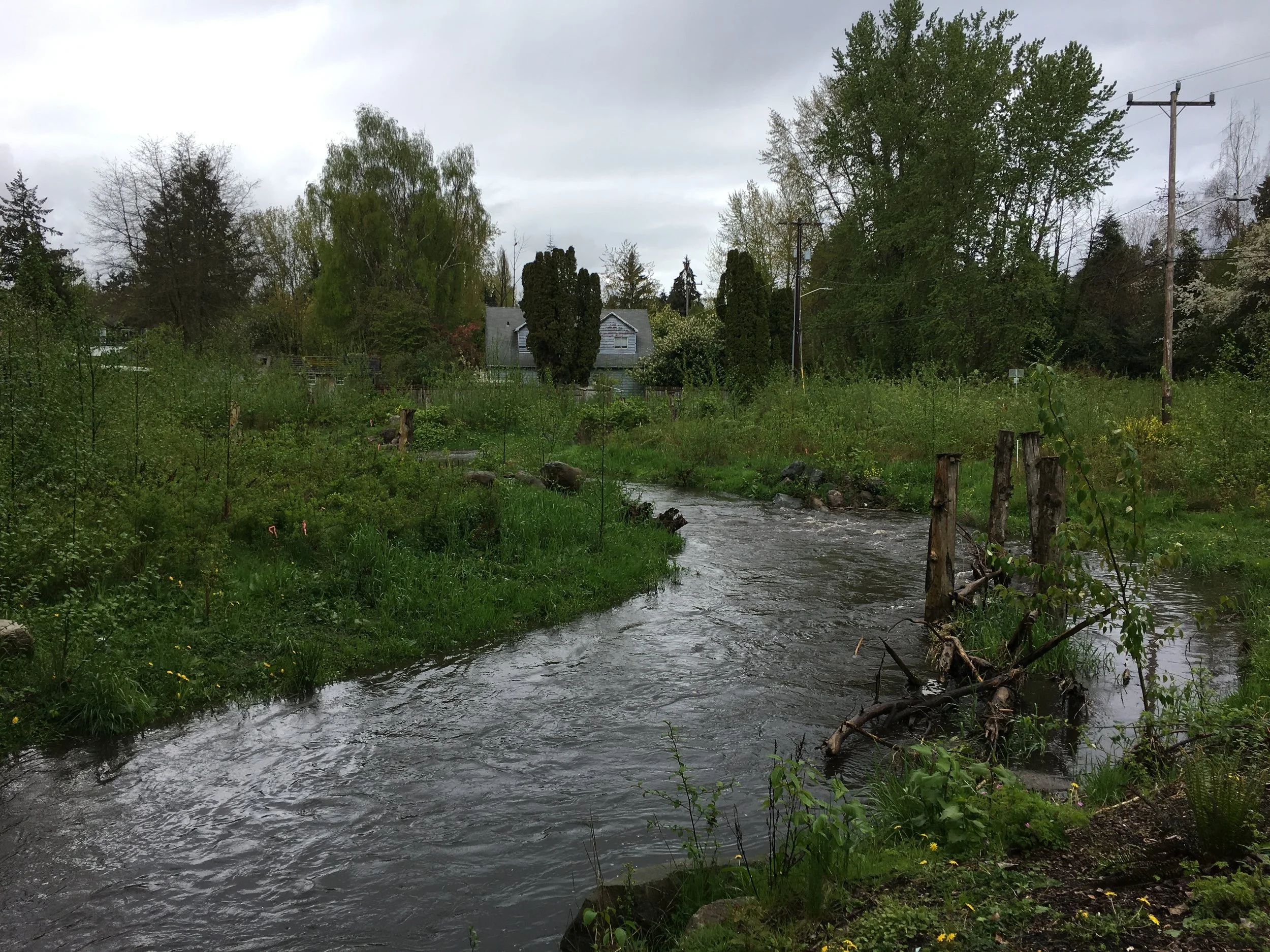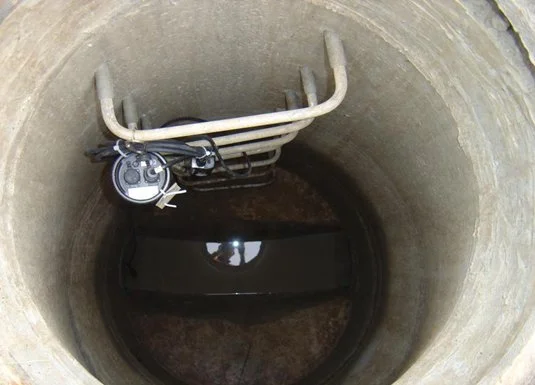BIORETENTION
Bioretention facilities are engineered and landscaped basins for capturing and cleaning stormwater.
CONVEYANCE PIPES - MAINTENANCE & REPAIR
Sewers and storm drains collect and safely move water around the city. Investing in the maintenance and repair of existing pipes prevents failures and reduces the risk of flooding and sewer back-ups.
CONVEYANCE PIPES - NEW AND UPSIZED
Investing in new and upsized sewers and storm drains can help reduce flooding and sewer overflows and protect water quality.
CONVEYANCE SWALES
Conveyance swales are shallow, planted channels that collect and move stormwater.
CREEK CULVERT IMPROVEMENTS
A creek culvert is a pipe that conveys a creek under a roadway or embankment. Old, damaged, or undersized creek culverts can cause upstream flooding, downstream erosion, or block the passage of fish.
FLOODPLAIN RECONNECTION
Floodplain reconnection reestablishes a connection between a creek and the nearby land. Floodplains ease flooding and improve water quality by removing pollutants and storing sediment.
GREEN ROOFS
Green roofs are roofs that are partially or fully covered with plants, ranging from lightweight grasses to full gardens and trees. Green roofs filter, absorb, and store rain before it falls to the ground.
NON-POTABLE WATER REUSE
Non-potable water is water not meant for drinking. However, if treated properly it can be safely used for other purposes such as irrigation, toilet flushing, heating, and cooling.
PERMEABLE PAVEMENT
Unlike traditional pavement, permeable pavement has tiny holes throughout and special types of soil and gravel underneath. This allows the ground to absorb stormwater.
PUMP STATIONS
Pump stations are structures that pump wastewater or stormwater. They can be used to move water over or up hills, move water from one basin to another, or move water to treatment plants.
REAL-TIME CONTROLS & SMART SENSORS
Real-time controls and smart sensors help utilities use data and technology to adjust the drainage or wastewater system during storms to prevent flooding and overflows.
SEA LEVEL RISE ADAPTATION
Sea level rise causes impacts such as flooding from storm surge and high tides, coastal erosion, and wetland loss. Adapting to sea level rise can mean protecting, modifying, or removing structures in areas affected by rising seas.
SHORELINE RESTORATION
Healthy shorelines help prevent flooding, protect water quality, and provide habitat. However, many shorelines have been damaged over time by development and other activities.
SIDE SEWERS - BACKFLOW PREVENTION
Side sewers are pipes that carry wastewater from sinks, toilets, and drains to the public sewer in the street. Backflow prevention devices can be installed on side sewers to prevent back-ups.
SIDE SEWERS - MAINTENANCE & REPAIR
Side sewers are pipes that carry wastewater from sinks, toilets and drains to the public sewer in the street. Side sewers require regular maintenance and repairs to prevent blockages, leaks, and other issues.
SOURCE CONTROL
Source control is an approach to finding potential pollution sources and stopping them from entering the drainage or wastewater system.
STORAGE FACILITIES
Storage facilities temporarily store and then release stormwater or wastewater. These structures reduce flows during large storms, helping prevent flooding and sewer overflows.
STORMWATER FLOW SEPARATION
In a combined sewer system, stormwater and wastewater travel through the same pipes to treatment plants. Stormwater flow separation removes stormwater from combined pipes by installing new storm drains to capture and carry stormwater directly to waterbodies.
STORMWATER PARKS & PONDS
Stormwater parks and ponds manage stormwater while providing open space. Stormwater parks and ponds collect and store stormwater from surrounding neighborhoods during times of heavy rain.




















